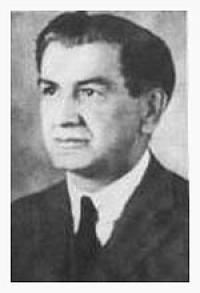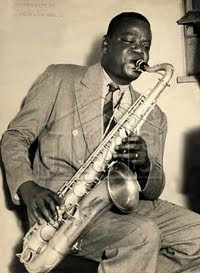Zequinha de Abreu - The Composer of 'Tico-tico no fúba'

Zequinha de Abreu was born in Santa Rita do Passa Quatro, SP, in 1880, the first of 8 children, and was reportedly playing tunes on a harmonica by the time he was 5. At the age of 10 he was playing flute and clarinet and writing tunes in his first band. But his mother wanted him to be a priest, and his father a doctor, so he was sent away to school in Sao Paulo. By the age of 16, however, he had run away from the Episcopal Seminary and gone back to Santa Rita, deciding on a career as a musician. He was directing his first orchestra by the time he was 17. It soon became known as the best in the region, and he continued to perform at dances, parties, and accompanying silent films for the next 20 years. Abreu married when he was 18, and supported his family (he would have 8 children) with the orchestra, by writing choro, marches, tangos, waltzes and other music, and by working a variety of political jobs, like secretary of the City Council.
In 1919, when his father died, Abreu moved his family to Sao Paulo. There he continued as a popular, much-requested performer in bars and cabarets, and began going door-to-door to demonstrate his compositions and sell the sheet music. He also worked as a "sheet music demonstrator" at Casa Beethoven, playing songs for people looking to buy music. At the time, before radio and the recording industry were established, this was an important way for composers to create interest in their own music by playing it between requests.
While working at Casa Beethoven, Abreu met Vincente Vitale, who had recently started a music publishing house. In 1924, Vitale published Abreu's waltz "Branca," which was a huge success, and the two began a lifelong collaboration. Vitale became the exclusive publisher for Abreu's music, and actually paid him a monthly salary just to write music, a very unusual arrangement for a composer at that time.
During his lifetime, Zequinha de Abreu was a popular musician who enjoyed regional fame for his music. He was said to be quiet, happy, kind, and humble about his own success. He was involved in music for his whole life, performing, giving piano lessons to children, writing and selling his compositions, improvising for hours on the piano, and accompaning the performances of two of his own children, Durval and Dermeval. He died in 1935, at the age of 54, and it would be 7 years before Carmen Miranda made his "Tico Tico" an international hit. Although none of his other pieces has approached the popularity of "Tico Tico," Zequinha de Abreu was certainly not a one-hit-wonder. His influence on Brazilian music during his lifetime – through his performances and his association with Vitale Publishing – is indisputable.
"Tico Tico" [composed 1917] has been a perennial favorite with instrumentalists for over 60 years, and is probably the most frequently recorded choro of all time.
Excerpt of web article on Abreu
Career profile at AMG including soundclips
61 versions of 'Tico-Tico' available here
Jo



0 Comments:
Post a Comment
<< Home